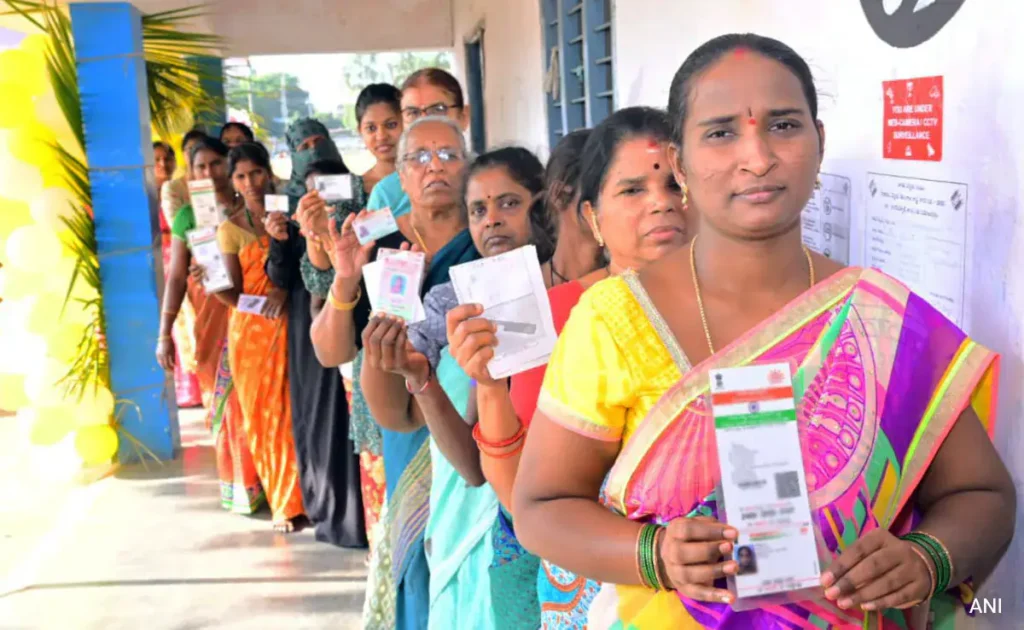Election for the Lok Sabha and state assemblies will take place concurrently in four states: Sikkim, Odisha, Arunachal Pradesh, and Andhra Pradesh. The region of Jammu and Kashmir, which has been governed by the president since 2018, was left off the list.Elections for the Lok Sabha and state assemblies will take place concurrently in four states: Sikkim, Odisha, Arunachal Pradesh, and Andhra Pradesh. The region of Jammu and Kashmir, which has been governed by the president since 2018, was left off the list.

Lok Sabha Election 2024:
New Delhi: The 2024 general elections for 543 Lok Sabha seats will be conducted in seven phases, starting from April 19th and will continue until June 1st, the Chief Election Commissioner Rajeev Kumar announced today, marking the beginning of the world’s largest democratic process. The BJP will attempt to come into power for the third consecutive time. The election results will be announced on June 4th.
Election for the Lok Sabha and state assemblies will take place concurrently in four states: Sikkim, Odisha, Arunachal Pradesh, and Andhra Pradesh. The region of Jammu and Kashmir, which has been governed by the president since 2018, was left off the list.Elections for the Lok Sabha and state assemblies will take place concurrently in four states: Sikkim, Odisha, Arunachal Pradesh, and Andhra Pradesh. The region of Jammu and Kashmir, which has been governed by the president since 2018, was left off the list.
According to Mr. Kumar, the elections for the Jammu and Kashmir legislative assembly will take place right after the Lok Sabha polls. He stated that the lack of security personnel makes it impractical to hold both elections at the same time. He additionally stated that every candidate running in the Jammu and Kashmir assembly elections will need protection provided by the commission.

By-elections will be held for 26 assembly seats across various states including Bihar, Gujarat, Haryana, Jharkhand, Maharashtra, Rajasthan, and Tamil Nadu.
Mr. Kumar, while announcing the dates, sent a strong message about the spread of fake news on social media, stating that political parties should ensure responsible social media behavior – “Verify before amplifying.”
They declared, “In compliance with the law, we will take bogus news very severely. The IT Act’s Section 79(3)(b) gives state-level nodal officers the authority to remove unlawful content.
Regarding the breach of the model code of behaviour in instances of hate speech, there was a second strong message. They said, “The campaign should be issue-based, there should be no hate speeches, no speeches based on caste or religion, and no criticism of anyone’s personal life.”

They added that the media had to make it clear that political commercials are not appropriate to display as news. They went on to say that the candidates will receive private messages in this regard.
Mr. Kumar said that voters over the age of 85 and disabled individuals with a disability of 40 percent can vote from home. He mentioned that approximately 82 million voters are above the age of 85.
The election announcement came a few days after Election Commissioner Arun Goel resigned, leaving the three-member commission with only the Chief Election Commissioner.
When asked about this matter, Mr. Kumar said, “Arun was a very esteemed member of the team, and I really enjoyed working with him. However, in every institution, an individual’s personal space should be respected. So, if he has mentioned personal reasons, please respect that.”
On Thursday, a committee chaired by Prime Minister Narendra Modi appointed two retired Indian Administrative Service (IAS) officers – Sukhbir Singh Sandhu and Gyanesh Kumar – as election commissioners. The next day, they took the oath of office.


